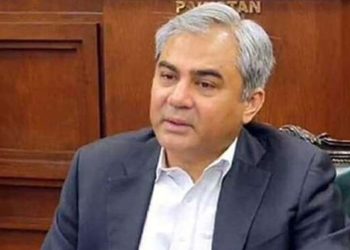Osamu Suzuki, the visionary who took a bold risk and bet on India when few believed in the possibility of a successful automobile industry there, has passed away at the age of 94, according to a statement from Japan’s Suzuki Motor Corporation on Wednesday.
According to several media reports, the former CEO of Suzuki Motor, died on December 25 after battling malignant lymphoma, the company confirmed.
Suzuki is celebrated for his pioneering role in partnering with the Indian government to establish a joint venture with Maruti Udyog Ltd in 1981, during a time when India’s economy was still under a license-based regime. His decision is credited with sparking the growth of India’s automotive sector.
Maruti Udyog Ltd eventually transformed into Maruti Suzuki India Ltd after the Indian government exited in 2007, leaving Suzuki Motor Corporation as the majority shareholder. Osamu Suzuki served as the Director and Honorary Chairman of Maruti Suzuki India Ltd.
R C Bhargava, Chairman of Maruti Suzuki India Ltd, remarked on Suzuki’s passing, saying, “Without his vision, willingness to take risks, and immense capabilities as a teacher, the Indian automobile industry would not have become the powerhouse it is today.” He further noted, “Millions of lives in India are better because of Osamu San.”
Bhargava also highlighted Suzuki’s significant contribution to the Indian economy and the deep bonds he forged between India and Japan, which earned him the Padma Bhushan. In a statement, MSIL referred to Suzuki as a “visionary leader” whose leadership played a critical role in the formation of Maruti Udyog Ltd in 1981 and in realizing the dream of making affordable, reliable, and high-quality vehicles accessible to millions of Indian families.
MSIL added that under Suzuki’s leadership, India’s automobile industry adopted Japanese manufacturing practices, which are globally recognized for their efficiency and cost-effectiveness.
Reflecting on Suzuki’s relationship with India, Bhargava said, “He earned the trust of several Prime Ministers, including Prime Minister Narendra Modi, and will be deeply missed by his many admirers and beneficiaries.” Bhargava also spoke personally, remembering Suzuki as a mentor and teacher, stating, “If I played any role in the success of Maruti, it was because I was his student.”
Suzuki, born January 30, 1930, graduated from Chuo University’s Faculty of Law and joined Suzuki Motor Co Ltd in 1958. He became Director in 1963 and Managing Director in 1967. He later became Chairman of Suzuki Motor Corporation in 2000, stepping down in 2021, when his son Toshihiro Suzuki succeeded him as CEO.
Automotive Component Manufacturers Association of India (ACMA) President Shradha Suri Marwah expressed condolences, calling Suzuki a “trailblazer, mentor, and innovator” whose contributions not only revolutionized the Indian automotive industry but also strengthened ties between India and Japan.
Marwah praised his unwavering commitment to excellence, humility, and sustainability, and emphasized that his legacy would continue to inspire future generations in the automotive and business communities.


































